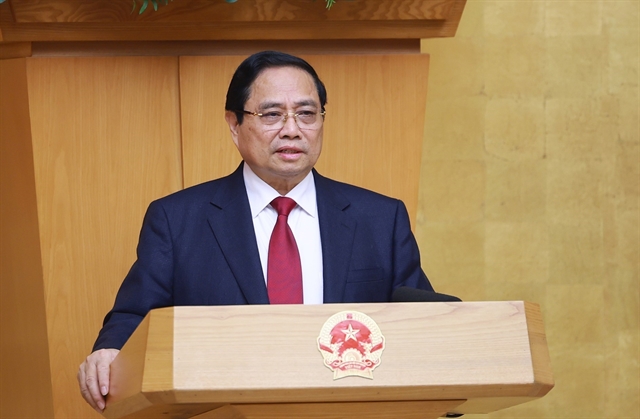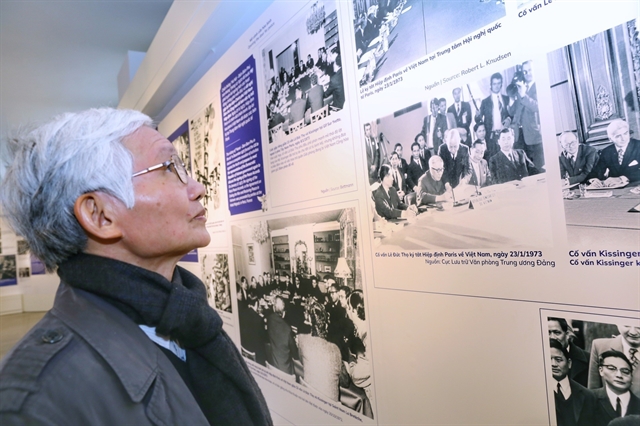 Politics & Law
Politics & Law

 |
| A local resident visits an exhibition to celebrate the 50th anniversary of Paris Peace Accords open on Monday in Hà Nội. — VNA/VNS Photo Tuấn Đức |
HÀ NỘI — On January 27, 1973, history was made as the Paris Agreement on Ending the War and Restoring Peace in Việt Nam, also known as the Paris Peace Accords, was signed, proving Việt Nam's aspirations for peace and the nation's tradition of amicable diplomacy.
The accord also marked an important turning point in the foreign policies of independence, self-reliance, multilateralisation and diversification in the period of Đổi mới (Renewal) and extensive international integration over the past 35 years.
Foreign Minister Bùi Thanh Sơn made the statement at a symposium highlighting the historical significance and lessons learned from the agreement, held in Hà Nội on Monday.
The valuable lessons from this historic negotiation are still valid and need to be effectively applied in implementing the foreign policy of the 13th National Party Congress, stated Sơn.
Participants agreed that the negotiation's success on the agreement resulted from the skilful and thorough application of President Hồ Chí Minh's thoughts on diplomacy and the coordination between Party and State diplomacy with people-to-people diplomacy.
Under the sound and ingenious leadership of the Party Central Committee and President Hồ Chí Minh, the agreement created a turning point in the situation and the balance of power, which was beneficial for the Vietnamese revolution towards the complete reunification of the country in 1975.
Deputy head of the Party Central Committee’s Commission for Information and Education, Lê Hải Bình, said that communication work at home and abroad contributed importantly to the achievement of the Paris Peace Accords, as it helped clarify the justice of the resistance war for national salvation, gather the support for Việt Nam’s struggle of people around the world, and encourage American people's movement against the war.
The Paris Agreement on Ending the War and Restoring Peace in Việt Nam was signed on January 27, 1973, by the Democratic Republic of Việt Nam, the National Front for the Liberation of South Việt Nam, the Republic of Việt Nam, and the US, after 201 open sessions, 45 high-level private talks, 24 secret meetings, 500 press conferences, 1,000 interviews and hundreds of get-togethers in support of Việt Nam.
The agreement ended the longest and most difficult struggle in the history of Việt Nam’s diplomacy.
A special publication on the 50th anniversary of the Paris Agreement was made public by the Ministry of Foreign Affairs in Hà Nội on the same day.
The Vietnamese-language, 200-page edition includes articles by people who directly participated in the historical negotiations and scholars, diplomatic researchers, journalists and international friends who wholeheartedly supported the struggle for the independence of the Vietnamese people.
Nguyễn Trường Sơn, Editor-in-Chief of the World and Vietnam newspaper, said the publication is not only gratitude and respect for the contributions of previous generations to national independence, unification, peace, prosperity and happiness but also a collection of lessons and experiences learnt from the negotiations, helping generations of diplomats better fulfil the tasks assigned by the Party and State.
It includes an article by Nguyễn Thị Bình, head of the negotiation delegation of the Provisional Revolutionary Government of the Republic of South Việt Nam at the Paris Peace Conference, and former Deputy Prime Minister Vũ Khoan. — VNS